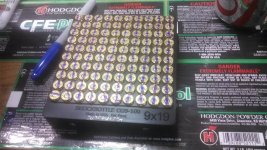Are some better than others or they pretty much all the same? Lyman advertises theirs (the one pictured) is made to MINIMUM SAMMI specs.
Realizing your guns chamber is the real test is there a value to having one or are they a waste of money?

Realizing your guns chamber is the real test is there a value to having one or are they a waste of money?


